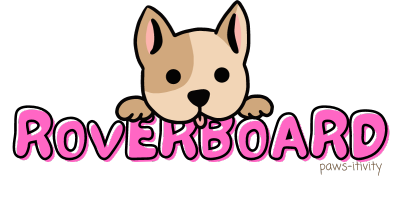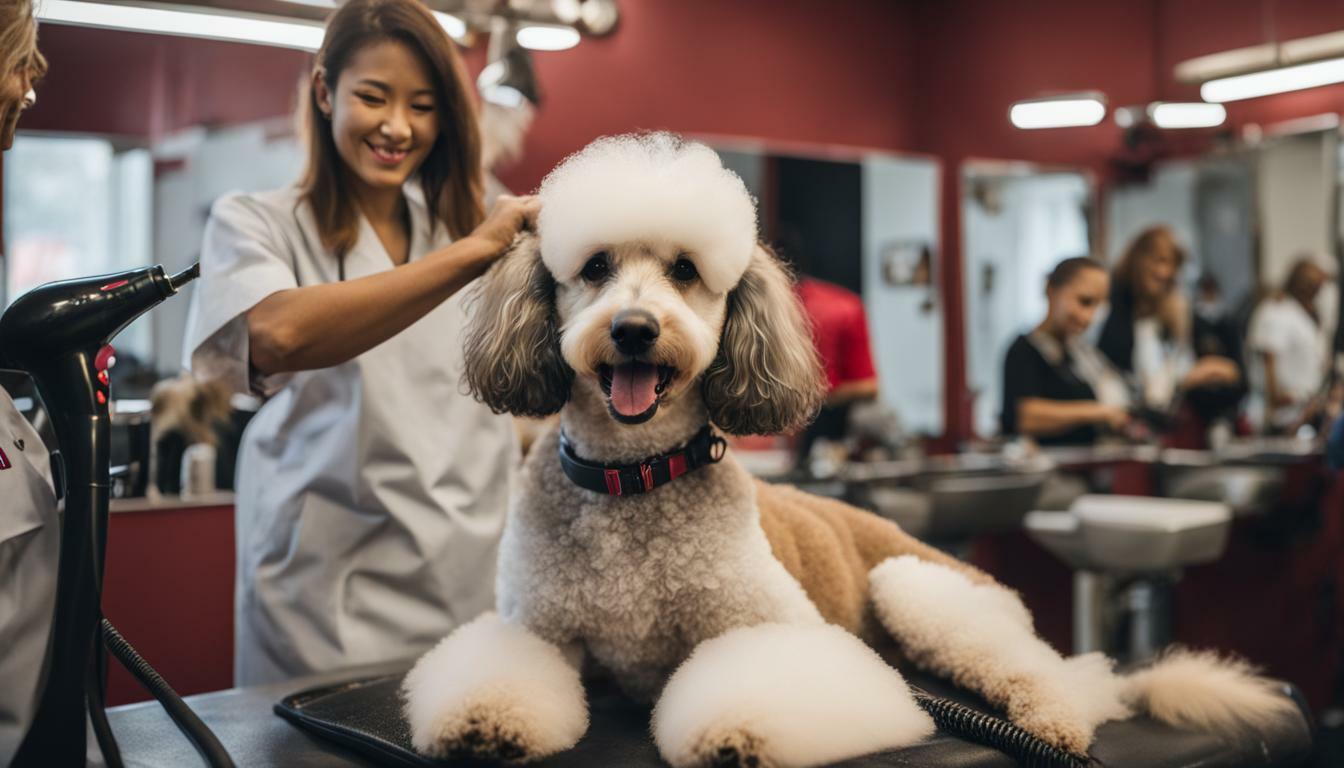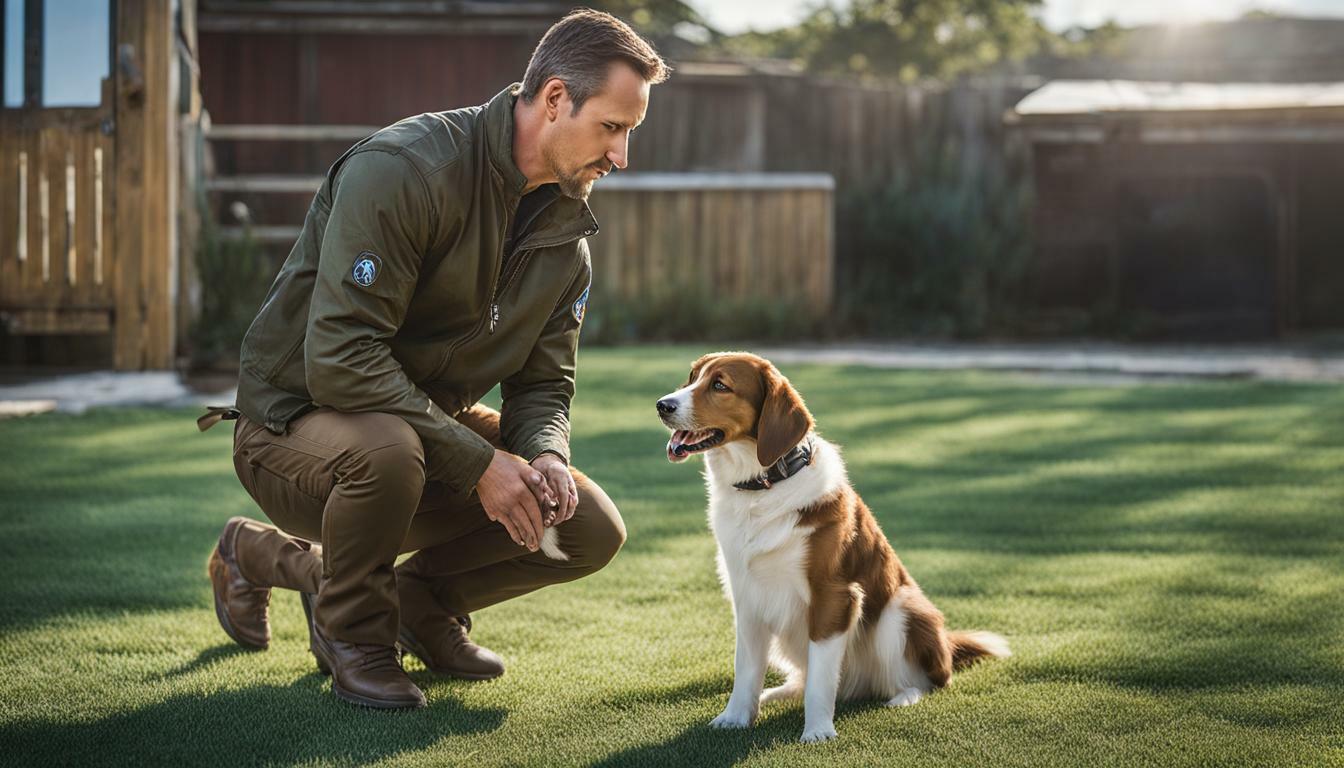If you’re considering bringing a Poodle into your home, it’s important to prepare for the responsibilities of pet ownership. Poodles are intelligent, affectionate dogs that require proper care, training, and socialization to thrive. This comprehensive Poodle ownership guide will cover everything you need to know to provide the best possible care for your furry friend.
- Proper care and grooming are essential to keeping your Poodle healthy and happy.
- Training and socialization are important for a well-behaved and friendly Poodle.
- Understanding your Poodle’s health needs can prevent serious health issues.
- Choosing the right Poodle breed for your lifestyle is crucial.
- Providing adequate exercise is necessary to prevent boredom and destructive behaviors.
Choosing the Right Poodle Breed
Before bringing a Poodle into your home, it’s essential to consider which breed is best suited for your lifestyle and preferences. Poodles come in three sizes – Standard, Miniature, and Toy – and have different coat types, including curly, corded, and wavy.
Standard Poodles are the largest of the Poodle breeds, standing 15 inches or taller at the shoulder and weighing between 40 and 70 pounds. They are intelligent and athletic dogs that require plenty of exercise and mental stimulation.
Miniature Poodles are 10 to 15 inches tall and weigh between 10 and 15 pounds. They are playful and adaptable dogs that are a good fit for families with children.
Toy Poodles are the smallest of the Poodle breeds, standing under 10 inches tall and weighing between 5 and 10 pounds. They are affectionate and loyal dogs that are well-suited for apartment living.
When choosing a Poodle, it’s also important to consider the coat type. The curly coat is the most well-known and requires regular grooming to prevent matting and tangling. The corded coat is the most unusual and requires extensive grooming to maintain the distinctive dreadlock-like appearance. The wavy coat is the least common and requires less grooming than the curly coat.
Consider your lifestyle and preferences when choosing the right Poodle breed for your home. Whether you’re looking for an energetic companion for outdoor activities or a small, affectionate lapdog, there’s a Poodle breed that’s right for you.
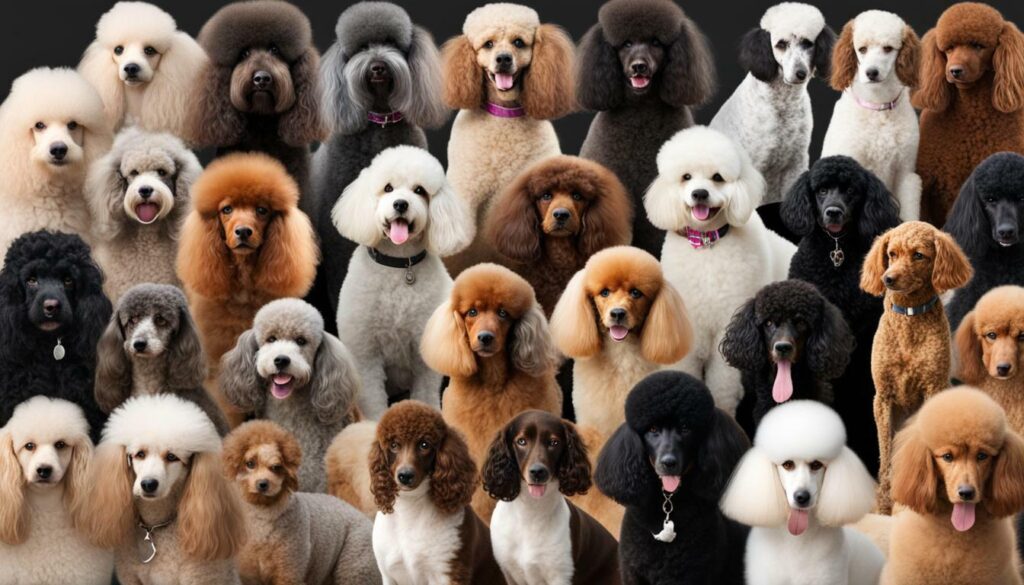
Proper care is crucial to keeping your Poodle healthy and happy. Here are some Poodle care tips to ensure your furry friend is well-cared for:
Grooming
Poodles have unique grooming requirements due to their curly, hypoallergenic coats. Regular grooming is essential to prevent matting and skin irritation. Brush your Poodle’s coat at least once a week and bathe them every three months to avoid drying out their skin. It is also important to maintain their distinctive haircuts, which can be done at home or by a professional groomer.
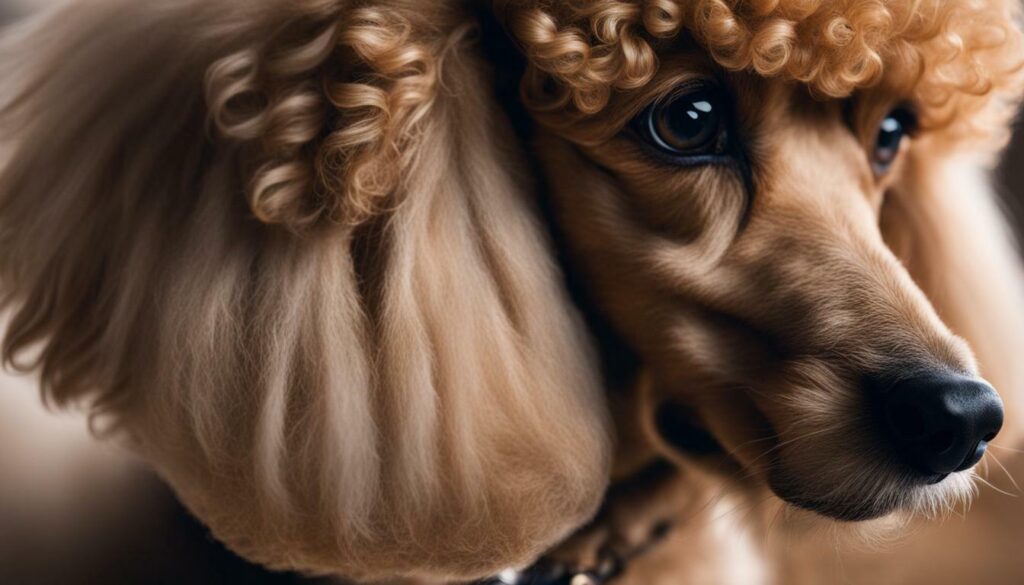
A healthy diet is essential for your Poodle’s well-being. Choose a high-quality dog food that is appropriate for their age, weight, and activity level. Poodles have a tendency towards obesity, so it is important to measure their food and avoid overfeeding them. Avoid giving your Poodle table scraps, as some human foods are toxic to dogs.
Exercise
Poodles are energetic dogs that require daily exercise to stay healthy and happy. They enjoy a variety of activities, including walks, runs, and games of fetch. Mental stimulation is also important, so consider providing puzzle toys and interactive playtime with you or other dogs.
Creating a Safe and Comfortable Environment
Creating a safe and comfortable environment is important for your Poodle’s physical and mental health. Keep your home free from hazards, such as toxic plants and small objects that can be swallowed. Provide a comfortable bed and adequate water and food dishes. Poodles are social animals and enjoy being around people, so make sure to spend quality time with your furry friend.
Common Health Issues
Poodles may be prone to certain health issues, such as hip dysplasia, ear infections, and dental problems. Regular check-ups with a veterinarian can help prevent and address these issues. It is also important to keep up-to-date with vaccinations and parasite prevention.
Conclusion
By following these Poodle care tips, you can ensure that your furry friend lives a long and healthy life. Remember to provide proper grooming, feeding, exercise, and a safe and comfortable environment. Stay informed about common health issues and seek veterinary care when necessary. With proper care, your Poodle can be a happy and cherished companion.
Poodle Training Advice
If you want a happy and obedient Poodle, training is a must. Here are some Poodle training advice that will help you establish a strong bond with your pet and keep them under control.
- Start early. Start training your Poodle as early as possible. The earlier they learn basic commands, the better chance you have of establishing good behavior.
- Use positive reinforcement. Using positive reinforcement, such as treats and praise, is more effective than using punishment. This technique helps your Poodle associate good behavior with rewards.
- Be consistent. Consistency is key when training your Poodle. Use the same commands and reward system every time you train them.
- Be patient. Training your Poodle takes time, patience, and dedication. Don’t expect instant results and be prepared to invest the time and effort required to train your pet properly.
- Enroll in obedience classes. If you’re struggling with training your Poodle, consider enrolling in obedience classes. This is an effective way to socialize your pet while learning effective training techniques from professionals.
By following these Poodle training advice, you can ensure that your pet will be obedient, well-behaved, and a joy to be around.
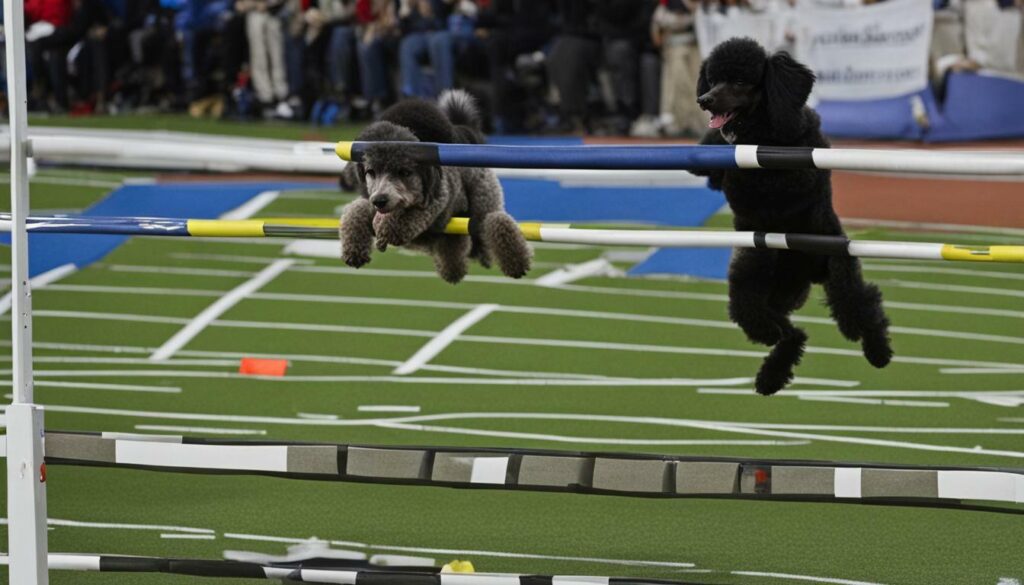
If you’re a new Poodle owner, it’s important to understand the health needs of your furry friend. While Poodles are generally healthy dogs, there are some common health conditions you should be aware of.
One of the health issues that Poodles are prone to is hip dysplasia, a condition that affects their hip joints, causing pain and difficulty with movement. To prevent hip dysplasia, make sure to maintain a healthy weight for your Poodle and provide them with regular exercise. You can also choose a reputable breeder who performs hip tests on their breeding dogs.
Poodles are also prone to eye problems, such as cataracts and progressive retinal atrophy. Regular check-ups with your veterinarian can help detect these issues early on, allowing for prompt treatment and management.
To ensure optimal health for your Poodle, make sure they receive all necessary vaccinations and preventative treatments. Regular grooming and dental care are also essential for preventing infections and keeping your Poodle’s coat healthy and shiny.

By staying informed about your Poodle’s health needs and providing them with proper care, you can enjoy a long and happy life with your beloved pet.
Grooming a Poodle
Poodles are known for their distinctive curly, hypoallergenic coats, which require regular grooming to maintain their health and appearance. Here are some essential grooming tips for keeping your Poodle looking and feeling their best:
- Bathing: Poodles should be bathed every 4-6 weeks, depending on their activity level and coat type. Use a mild dog shampoo and warm water, and be sure to rinse thoroughly to avoid skin irritation.
- Brushing: Brushing your Poodle daily can prevent matting and tangles, which can be painful and reduce air circulation to the skin. Use a slicker brush or comb to remove any knots, and a pin brush for regular brushing. Be gentle and take your time to avoid pulling on the hair.
- Cutting: Poodles require regular haircuts to maintain their distinctive shapes. Depending on your Poodle’s breed, you may choose to clip them in a puppy cut, continental cut, or other styles. Consider hiring a professional groomer if you’re not confident in your cutting skills.
- Cleaning: Poodles are prone to ear infections, so it’s important to clean their ears regularly. Use a gentle ear cleaner and cotton balls to wipe away any excess wax or debris. You may also want to trim the hair around their ears to increase airflow and reduce moisture buildup.
- Trimming: Poodles have hair growth in their paw pads and may need to have this hair trimmed regularly. This can help reduce the risk of slipping on smooth floors and eliminate debris from getting stuck between the toes.
By following these grooming tips, your Poodle will not only look great but also feel comfortable and healthy. Remember to give them plenty of praise and treats during grooming sessions to make it a positive experience for both of you.
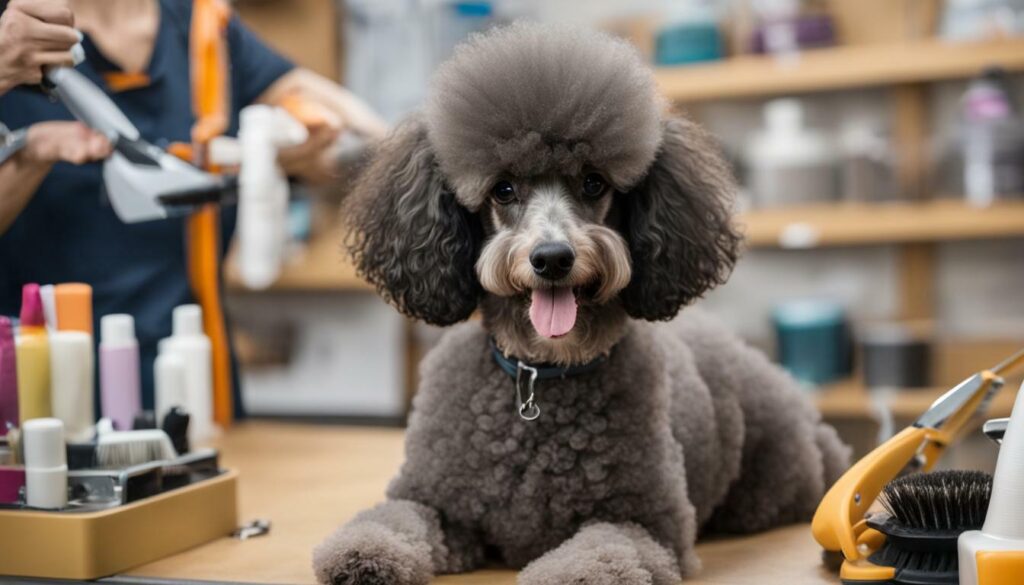
Socialization is crucial for a well-adjusted and friendly Poodle. As social animals, Poodles thrive on the interaction with their owners, other pets, and strangers. By properly socializing your Poodle, you can help prevent behavioral issues and ensure they feel comfortable and confident in any situation.
Start socializing your Poodle from a young age. Poodles are intelligent and learn quickly, so the earlier you start, the better your results will be. Introduce your Poodle to a variety of people, including children, men, women, and seniors. Expose them to different environments, such as parks, streets, and stores, and let them experience different sounds, sights, and smells.
When introducing your Poodle to other pets, supervise their interactions closely. Start with dogs that are calm and well-behaved, and gradually introduce your Poodle to more challenging situations. Encourage positive interactions and reward good behavior with treats and praise.
Keep in mind that Poodles are sensitive dogs and may become overwhelmed in new situations. If your Poodle shows signs of fear or anxiety, such as hiding, trembling, or barking excessively, remove them from the situation and try again later.
By socializing your Poodle properly, you can prevent many behavioral problems, such as separation anxiety, excessive barking, and aggression towards strangers. With patience and consistency, your Poodle will grow into a well-rounded and sociable companion.
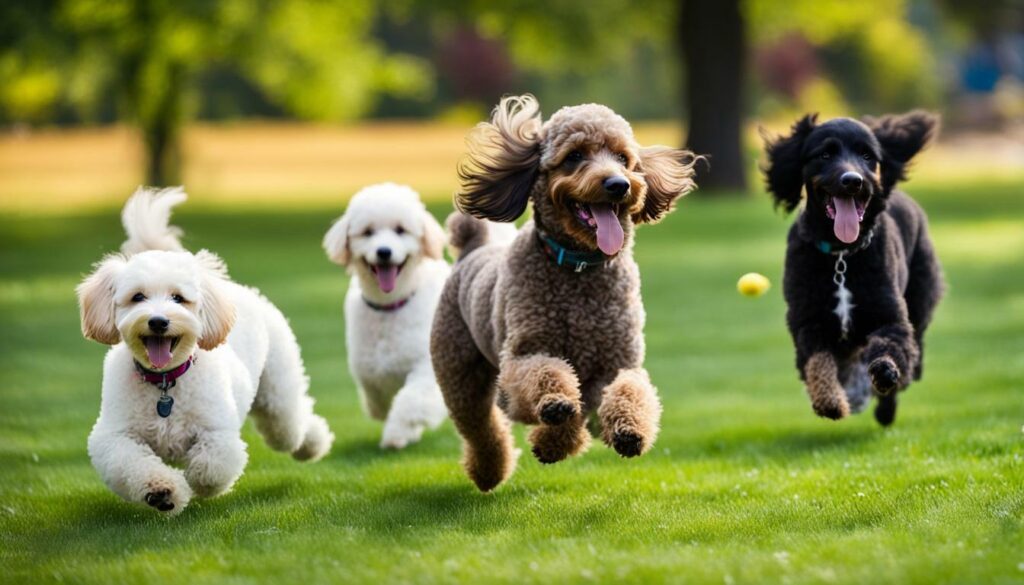
Don’t forget that socializing your Poodle is an ongoing process. Make sure to continue exposing them to new situations, people, and animals throughout their life. By doing so, you’ll build a strong bond with your furry friend and enjoy a lifetime of happy memories together.
Poodle Behavior Guide
Poodle behavior can be charming and endearing, but sometimes challenging for owners. In this section of our Poodle ownership guide, we will explore common Poodle behaviors and provide strategies for managing and modifying these behaviors.
Separation Anxiety
Poodles are known for their loyalty and attachment to their owners, which can sometimes lead to separation anxiety when left alone. Signs of separation anxiety in Poodles include excessive barking, destructive behavior, and inappropriate elimination.
To manage separation anxiety in Poodles, it’s important to gradually acclimate them to being alone. Start with short periods of separation and gradually increase the time as your Poodle becomes comfortable. Provide plenty of toys and distractions, and consider using pheromone sprays or supplements to promote calmness.
Barking
Poodle barking can be a nuisance for owners and neighbors, but it’s a natural behavior for this breed. Excessive barking can indicate boredom, stress, or a need for attention.
To manage Poodle barking, it’s important to identify the cause and address it accordingly. Provide plenty of exercise and mental stimulation, and teach your Poodle a “quiet” command. Consistency and positive reinforcement are key to modifying barking behavior.
Aggression
Poodles are generally friendly and affectionate, but some may exhibit aggression towards people or other animals. Aggressive behavior can be caused by fear, dominance, or frustration.
To manage Poodle aggression, it’s important to work with a professional trainer or behaviorist. They can help identify the cause of the aggression and recommend appropriate techniques for modifying the behavior. Avoid punishment or physical force, as it can escalate aggressive behavior.

Other common Poodle behaviors include digging, chewing, and jumping. These behaviors can be managed through exercise, mental stimulation, and training. Redirecting the behavior to acceptable alternatives, such as chew toys or designated digging areas, can also be effective. Consistency and positive reinforcement are essential to modifying any behavior.
With our Poodle behavior guide, you can better understand and manage your furry friend’s behavior. Remember to always approach behavior modification with patience, consistency, and positive reinforcement.
Poodle Exercise Needs
As intelligent and active dogs, Poodles require regular exercise to maintain their physical and mental health. Adequate exercise can help prevent obesity and other health issues, as well as reduce boredom and destructive behaviors.
Daily Activities
Poodles should engage in daily activities that provide both physical and mental stimulation. This can include brisk walks, jogging, or playing fetch in the backyard. Poodles also enjoy a game of hide and seek or puzzle toys that challenge their problem-solving skills.
Mental Stimulation
Because Poodles are highly intelligent, they require mental stimulation in addition to physical exercise. This can include training sessions, interactive toys, and dog puzzles. Engaging in activities that challenge their mind can also prevent the development of destructive behaviors such as chewing on furniture or excessive barking.
Interactive Playtime
Poodles enjoy playing with their owners and other dogs. Interactive playtime can include fetch, tug-of-war, and playing with toys such as frisbees or balls. This type of play is an excellent opportunity for owners to bond with their Poodles and provide them with the exercise and mental stimulation they need.
Overall, Poodles require daily exercise and mental stimulation to stay happy and healthy. By incorporating various activities into their routine, owners can ensure that their Poodle is getting the exercise they need to thrive.
FAQ
Choosing the Right Poodle Breed
Before bringing a Poodle into your home, it’s important to consider the different Poodle breeds available. We will discuss the different sizes and coat types of Poodles, helping you make an informed decision about which breed is best suited for your lifestyle and preferences.
Poodle Care Tips
Proper care is crucial to keeping your Poodle healthy and happy. In this section, we will provide tips on grooming, feeding, exercise, and creating a safe and comfortable environment for your Poodle. We will also cover common health issues that Poodles may face and how to prevent them.
Poodle Training Advice
Training your Poodle is essential for a well-behaved and obedient pet. We will delve into effective training techniques, including house training, basic obedience commands, and addressing behavioral issues. With our expert advice, you’ll be equipped to train your Poodle and establish a strong bond.
Poodle Health Information
Understanding your Poodle’s health needs is essential for providing optimal care. We will discuss common health conditions that Poodles may be prone to, as well as preventive measures, vaccinations, and regular check-ups. By staying informed about your Poodle’s health, you can ensure a long and happy life for your furry friend.
Grooming a Poodle
Poodles have unique grooming requirements due to their curly, hypoallergenic coats. In this section, we will provide step-by-step instructions on how to groom your Poodle, including bathing, brushing, and maintaining their distinctive haircuts. With our grooming tips, your Poodle will always look their best.
Socializing a Poodle
Socialization is crucial for a well-adjusted and friendly Poodle. We will discuss the importance of socializing your Poodle from a young age and provide tips on introducing them to new people, animals, and environments. By socializing your Poodle properly, you can prevent behavioral issues and ensure a confident pet.
Poodle Behavior Guide
Understanding your Poodle’s behavior is key to addressing any challenges and fostering a harmonious relationship. We will explore common Poodle behaviors, such as separation anxiety, barking, and aggression, and provide strategies for managing and modifying these behaviors. With our behavior guide, you can create a positive and well-behaved Poodle.
Poodle Exercise Needs
Poodles are energetic and intelligent dogs that require regular exercise to stay happy and healthy. We will outline the exercise needs of Poodles, including daily activities, mental stimulation, and interactive playtime. By providing your Poodle with adequate exercise, you can prevent boredom and destructive behaviors.

Marissa Delotta, 36, from Dayton, Ohio, is the creative force behind Roverboard.com, a beloved online destination for dog lovers. As a dedicated mom and canine enthusiast, Marissa combines her family experiences with her love for dogs to offer a platform where dog owners can exchange tips, heartwarming stories, and advice. Her website has become a vibrant community for sharing the joys of dog parenting. In her free time, Marissa enjoys exploring dog parks with her family and volunteering at local animal shelters.
